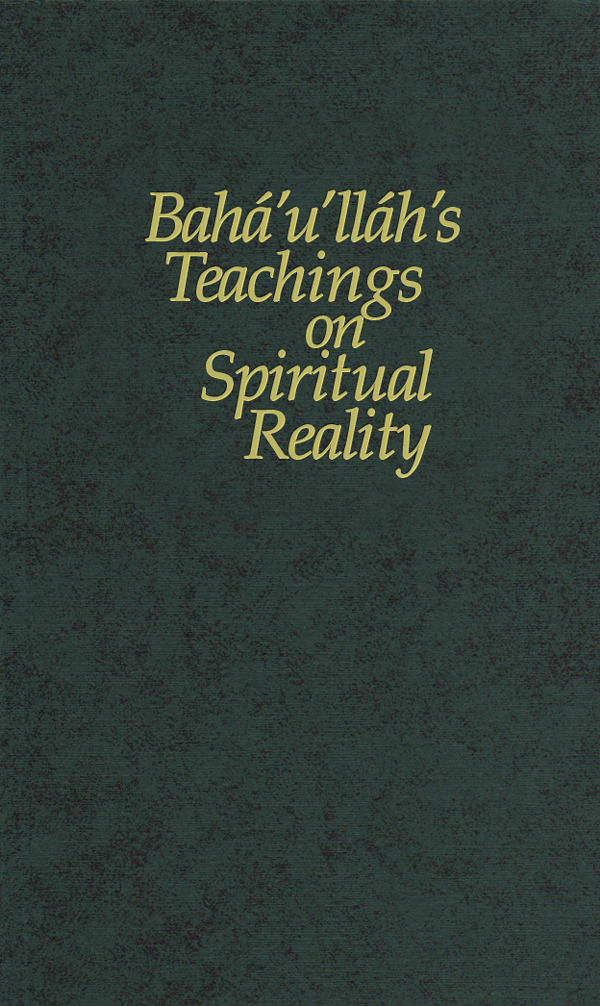Bahá’u’lláh, the founder of the Bahá’í Faith, stands as a pivotal figure in modern religious thought. His teachings encompass a profound reconfiguration of spiritual beliefs, aiming to transcend the barriers of race, class, and tradition. One may wonder, in a world inundated with diverse ideologies and creeds, how can one elucidate the essence of Bahá’u’lláh’s teachings without lapsing into trivialities? This inquiry not only provokes the intellect but also invites a challenge: to distill the profundities of Bahá’í principles while maintaining the integrity of their transformative potential.
To comprehend the teachings of Bahá’u’lláh, it is imperative first to contextualize his historical backdrop. Born in Persia in 1817, Bahá’u’lláh emerged during a tumultuous period marked by religious upheaval and social transformation. His mission commenced with a clarion call for unity, advocating a harmonious coexistence among the diverse strands of humanity. Central to his philosophy is the concept of ‘Oneness of Humanity,’ which posits that all individuals, regardless of their nationality, ethnicity, or faith, are interconnected parts of a singular global entity. This radical notion challenges deeply entrenched societal divisions and spurs individuals toward a more inclusive mindset.
Moreover, Bahá’u’lláh emphasized the importance of personal transformation as a precursor to collective progress. He imparted that true change begins within, urging adherents to cultivate virtues such as compassion, honesty, and humility. These characteristics serve not merely as moral embellishments but as essential elements in the pursuit of spiritual maturity. One might ponder, how does this introspective journey contribute to the broader societal transformation? The answer lies in the rippling effect of individual actions on the community. As one embodies these ideals, the collective ethos gradually shifts, fostering an environment conducive to harmony and collaboration.
In addition to personal transformation, Bahá’u’lláh articulated the significance of knowledge and education. He asserted that education is the bedrock upon which a prosperous society is built. This vision transcends conventional metrics of educational attainment; it encompasses moral and spiritual education as fundamental to human development. The pursuit of knowledge, for Bahá’u’lláh, is not merely an intellectual endeavor but a sacred responsibility. Through enlightenment, individuals are better equipped to contribute meaningfully to the betterment of society, challenging the status quo of oppression and ignorance.
Consequently, one cannot explore Bahá’u’lláh’s teachings without addressing his advocacy for social justice. He vigorously condemned all forms of prejudice and inequality, urging a collective responsibility to eradicate injustice. This commitment to justice is intrinsically linked to his principle of the ‘Oneness of Humanity’—as long as oppression persists in any form, true unity remains elusive. The implications of this teaching are far-reaching: it implores adherents to actively engage in social reform, seeking to dismantle systemic barriers and contribute to the elevation of marginalized communities. How, then, can individuals mobilize their efforts toward fostering social justice in a world that often revels in its divisions?
In Bahá’í discourse, the concept of unity does not simply entail the absence of conflict; it embodies a dynamic process of collaboration. Bahá’u’lláh envisioned a world where the diversity of human expression is celebrated, urging individuals to harmonize their varied perspectives toward a singular purpose. This conception of unity challenges the myopic view often espoused in contemporary society, where differences can engender discord rather than enrichment. Bahá’u’lláh’s teachings compel individuals to recognize that diverse viewpoints can coexist and contribute to a more holistic understanding of truth. The challenge thus posed is profound: can we, as a society, embrace our differences while striving towards a unified vision?
Furthermore, Bahá’u’lláh’s teachings offer a unique perspective on the nature of God and revelation. He articulated that divine revelation is not a fixed phenomenon but rather a progressive process, manifested through successive prophets or ‘Manifestations of God.’ This continuity emphasizes that no single religious tradition holds a monopoly on spiritual truth; rather, each contributes to a broader tapestry of divine wisdom. This understanding mitigates religious dogmatism and invites followers from diverse backgrounds to engage in sincere dialogue. Can humanity, then, transcend the confines of sectarianism to embrace a broader spiritual dialogue?
Ultimately, Bahá’u’lláh’s legacy endures as a beacon of hope and inspiration. His teachings call for a paradigm shift, urging humanity toward a journey of mutual respect and understanding amidst its vast diversity. While challenges abound, the transformative potential of his principles offers a roadmap for individuals and communities seeking to navigate the complexities of contemporary existence. In this quest for unity, Bahá’u’lláh reminds us that the endeavor is not solely about philosophical alignment but about fostering actual, tangible connections that culminate in a more just and harmonious world.
In conclusion, Bahá’u’lláh’s teachings present a comprehensive framework for understanding the spiritual and social evolution of humanity. They invite a critical examination of our individual and collective responsibilities while challenging us to cultivate a world marked by empathy and collaboration. As we reflect on these principles, we may ask ourselves: How can we actively embody and propagate the teachings of Bahá’u’lláh to foster a legacy of unity and peace? The answer lies within, beckoning us to embrace the transformative power of love and understanding.
